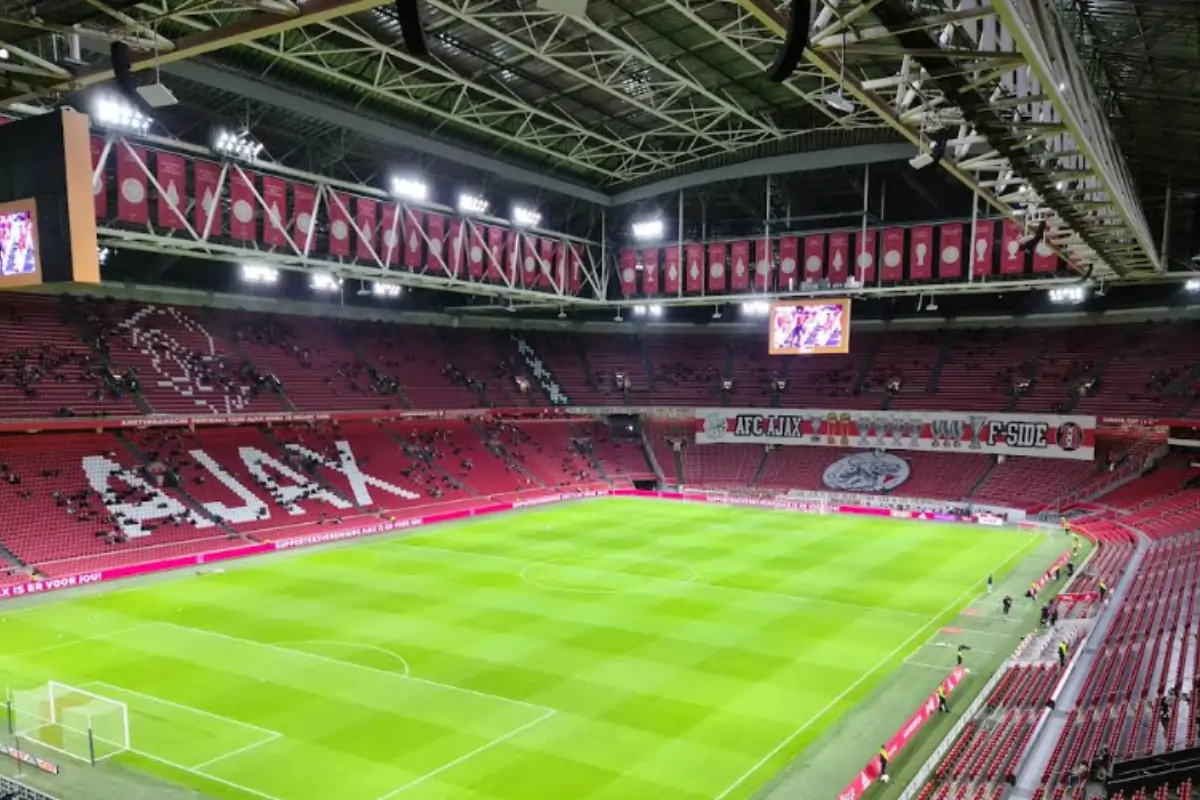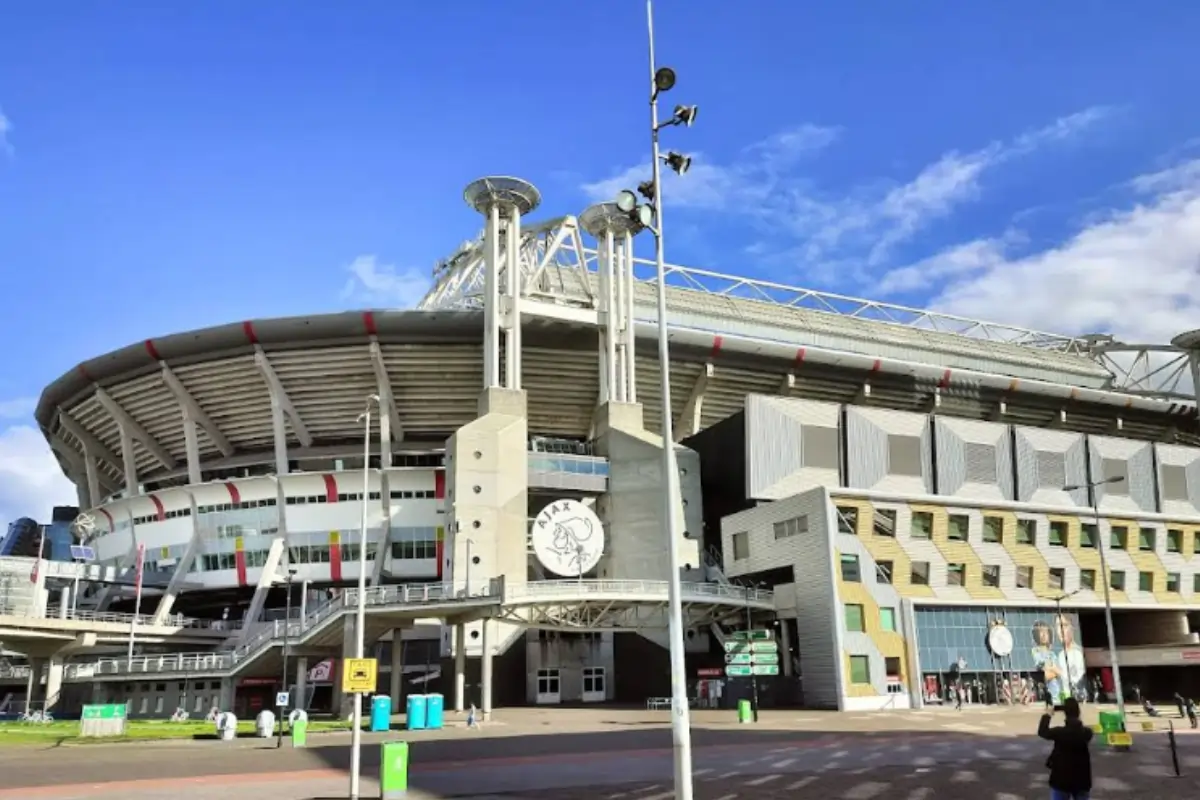Table of Contents
What does Ajax represent in Amsterdam for visitors?
Ajax represents Amsterdam’s most internationally recognised football institution and functions as a cultural reference point rather than a universal civic obsession.
For visitors, the club helps explain local identity, football culture, and why matchdays affect transport, crowd patterns, and neighbourhood activity around the stadium.
Based on publicly available attendance and media data, AFC Ajax remains the most internationally followed Dutch football club as of 2026, despite most supporters living outside Amsterdam itself.

Is Ajax synonymous with the city of Amsterdam?
Ajax is strongly associated with Amsterdam, but it does not represent all residents.
The club is often treated as a symbol of the city abroad, while local support inside Amsterdam is more mixed than visitors expect.
This distinction matters because Amsterdam is highly international, and football allegiance does not align neatly with residency.
The city hosts students, professionals, and long-term residents who support other clubs or none at all.
How much do Amsterdam residents follow Ajax on a daily basis?
Most residents follow Ajax passively rather than closely.
Match results matter, especially in domestic competition and European fixtures, but daily attention to coaching decisions or transfer policy is limited to dedicated supporters.
For visitors, this means that football dominates public discourse primarily during high-profile matches or title races, rather than as a constant topic.
Why is Ajax important beyond match results?
Ajax is significant for its youth academy and its historical influence on Dutch football.
The club is known for developing players who later shape national and international competitions.
The Ajax youth academy at De Toekomst has trained players for both club and national teams since the mid-20th century, and its development model remains active in 2026.

Does Ajax reflect Amsterdam’s cultural diversity?
Ajax teams regularly include players from varied national and cultural backgrounds, which mirrors the city’s international population.
This diversity is visible on the pitch and is often cited as one reason the club maintains broad appeal beyond traditional supporter groups.
While Ajax has historical Jewish associations, present-day support and team composition are multicultural, and interpretations vary across communities.
Do all Amsterdam residents support Ajax?
No, support is not universal.
Many residents follow clubs from other Dutch cities, international leagues, or do not follow football at all.
Rivalries persist, particularly with Feyenoord and PSV Eindhoven, though they primarily affect the atmosphere on matchdays.
Why do so many Ajax supporters live outside Amsterdam?
Ajax attracts nationwide and international support due to its history, European success, and well-known former players.
As a result, the club’s largest supporter base is spread across the Netherlands rather than concentrated in the city.
This pattern explains why major matches bring large numbers of visitors to Amsterdam from other regions.
How does Ajax balance youth development and competition?
Ajax operates with a long-standing model that prioritises training young players while selling top performers to larger leagues.
This approach supports financial stability but makes long-term squad continuity difficult.
The club continues to adjust this balance between experience and development as part of its 2026 sporting policy.
What role did Johan Cruyff play in shaping modern Ajax?
Johan Cruyff shaped Ajax as both a player and an institutional reformer.
His influence extended to youth training structure, playing philosophy, and governance changes.
In 2011, Johan Cruyff initiated reforms that returned decision-making in football to former players and technical specialists, a structure that remains influential today.

Does Ajax’s performance affect visitors practically?
Ajax performance is primarily affected by crowd density and transport demand.
Matches at the Johan Cruyff Arena increase congestion on metro lines and in the Amsterdam-Zuidoost area.
Major home fixtures typically attract attendance above 50,000 at the Johan Cruyff Arena, according to stadium capacity data updated in 2026.
Is visiting the Johan Cruyff Arena relevant for non-football fans?
Yes, the stadium functions as a landmark and event venue beyond football.
Guided tours and museum-style exhibits provide context on Dutch football history.
Visitors should check event schedules in advance, as access varies on matchdays and concert days.
FAQs
Q. Is Ajax the national team of the Netherlands?
No. Ajax is a club team, although many Dutch national players historically trained or played there.
Q. Do you need to support Ajax to enjoy Amsterdam?
No. Football interest is optional and does not affect access to most attractions.
Q. Are Ajax matchdays disruptive for tourists?
Only locally. Transport and crowds are affected mainly around Amsterdam-Zuidoost.
Q. Is Ajax known outside the Netherlands?
Yes. Ajax is widely recognised across Europe and internationally due to past European titles and player exports.
Q. Can visitors attend an Ajax match easily?
Attendance depends on fixture importance and ticket availability, both of which vary by competition and season.
What should visitors take away from Ajax’s role in Amsterdam?
Ajax helps explain Amsterdam’s international profile in football without defining daily city life.
For visitors, understanding Ajax adds cultural context, helps with matchday planning, and explains why the club remains a frequent reference point in discussions about the city.
Why is Johan Cruyff essential to understanding Ajax’s role in Amsterdam?
Johan Cruyff explains why Ajax’s influence extends beyond match results and league tables.
His involvement shaped the club’s youth development structure, playing philosophy, and governance model, which continue to influence how Ajax operates today.
For visitors seeking historical context, Cruyff’s career connects Ajax to broader developments in Dutch and European football.
His reforms in the early 2010s shifted decision-making back toward football-led expertise, a structure that remains relevant as of 2026.
Visitors interested in this background can refer to the dedicated Johan Cruyff overview for context on his career.
His relationship with Ajax, and why his name remains closely associated with Amsterdam’s football identity.